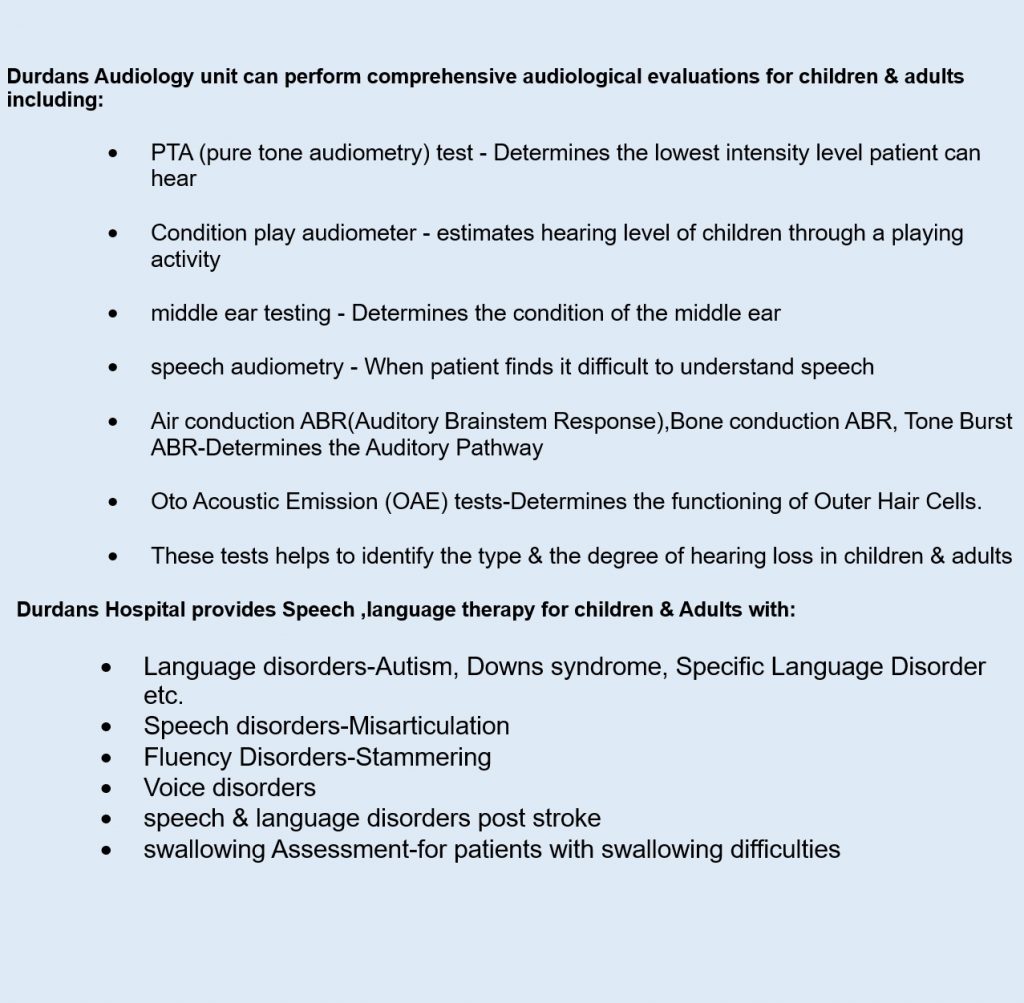Early detection is important
Research has shown that detection of hearing disorders before the first six months of a child’s life leads to better interventional outcomes than when detected after six months. In fact countries like the US practicing neonatal hearing screening for all newborns across the country further affirms its importance.
Manthi Dissanayake, Audiologist of Durdans Hospital says, “It is important that parents, care givers, physicians and teachers know the signs to look for in children that may have hearing loss and speech disorders and address these issues because undiagnosed hearing loss in children can cause developmental and emotional problems that can have long-term consequences.”
From birth to four months, your infant should:
- Startle at loud sounds
- Wake up or stir at loud noises
- Respond to your voice by smiling or cooing
- Calm down at a familiar voice
From four months to nine months, your infant should:
- Smile when spoken to
- Notice toys that make sounds
- Turn its head toward familiar sounds
- Make babbling noises
- Understand hand motions like the bye-bye wave
From nine to 15 months, your infant should:
- Make various babbling sounds
- Repeat some simple sounds
- Understand basic requests
- Use its voice to get your attention
- Respond to name
From 15 to 24 months, your infant should:
- Use many simple words
- Point to body parts when you ask
- Name common objects
- Listen with interests to songs, rhymes and stories
- Point to familiar objects you name
- Follow basic commands
Hearing problems that occur from birth may be the result of a number of issues that may or not be genetic. Non-genetic factors could include complications that may have occurred during a pregnancy or nervous or brain disorder.
If it is noticed that the child is not developing language age adequately, speech is not clear or has a difficulty producing speech sounds ,if there is a deviancy in acquiring language & behaviors such as toe walking, lining of toys, flapping arms, not responding to name call, poor social skills seen it could be because of a child communication disorder.
If a parent delays diagnosis & treatment for hearing loss or language disorder there will be a delay in academic & social development of the child














